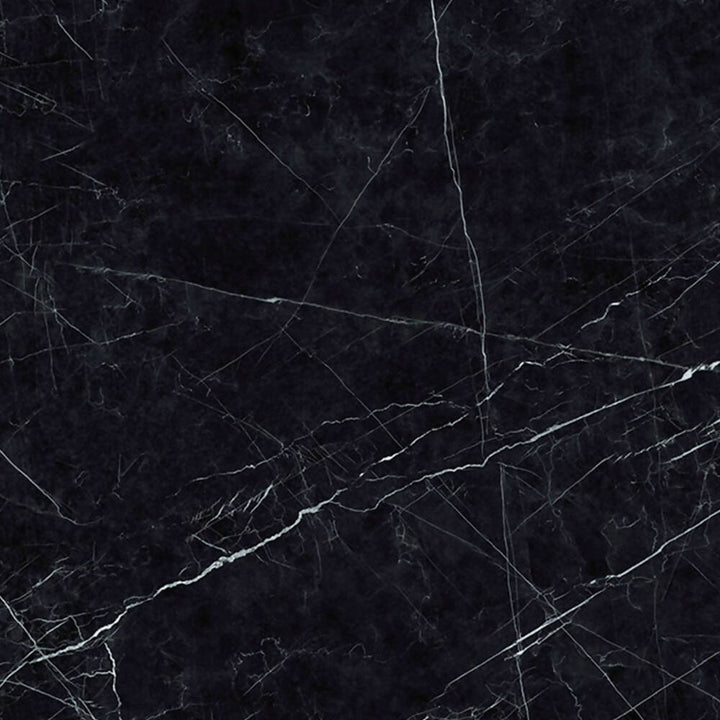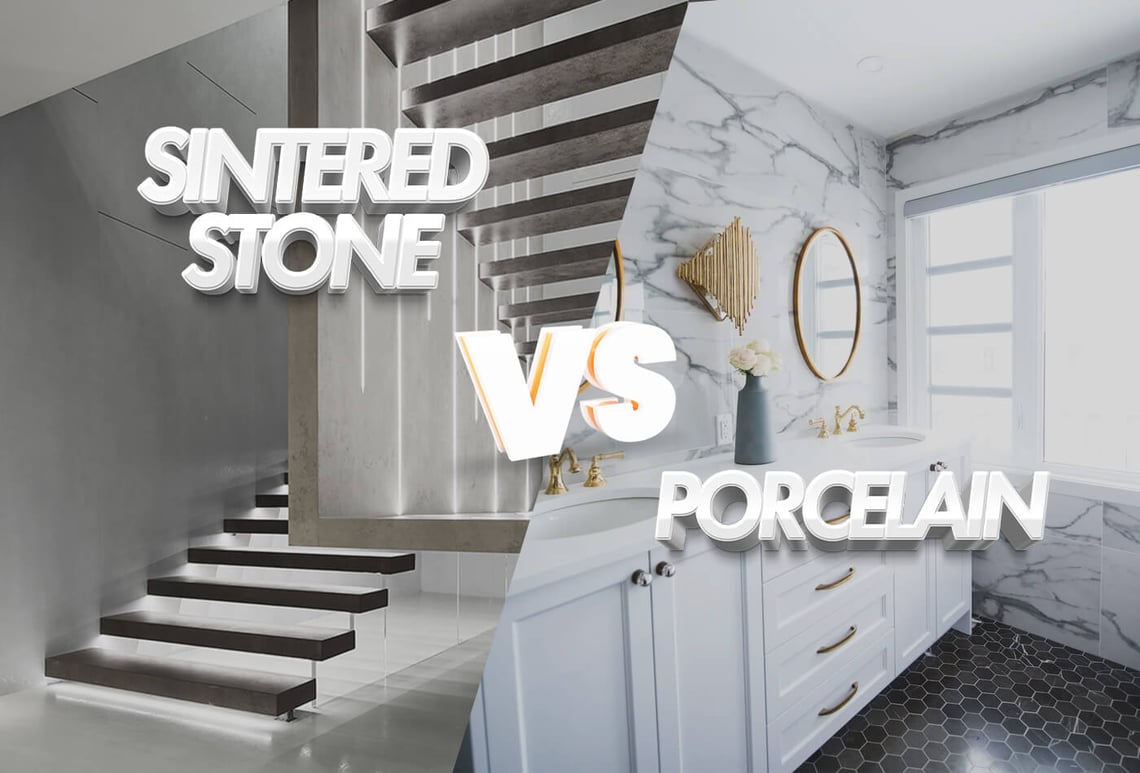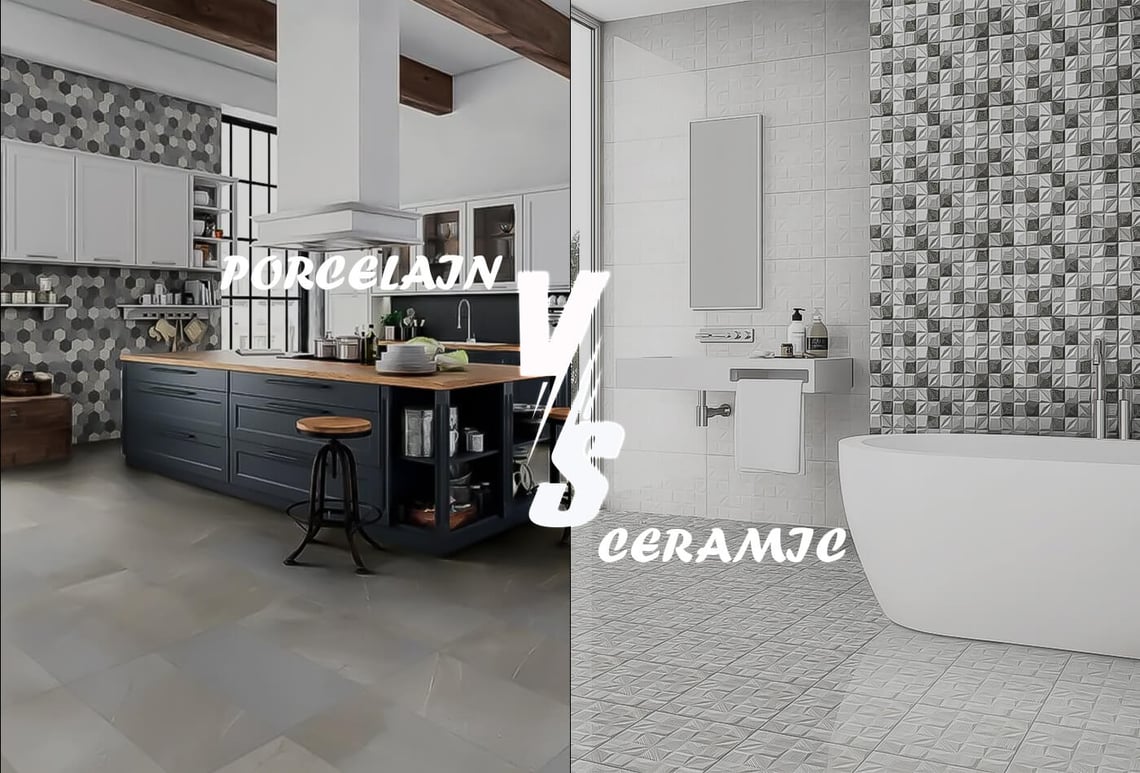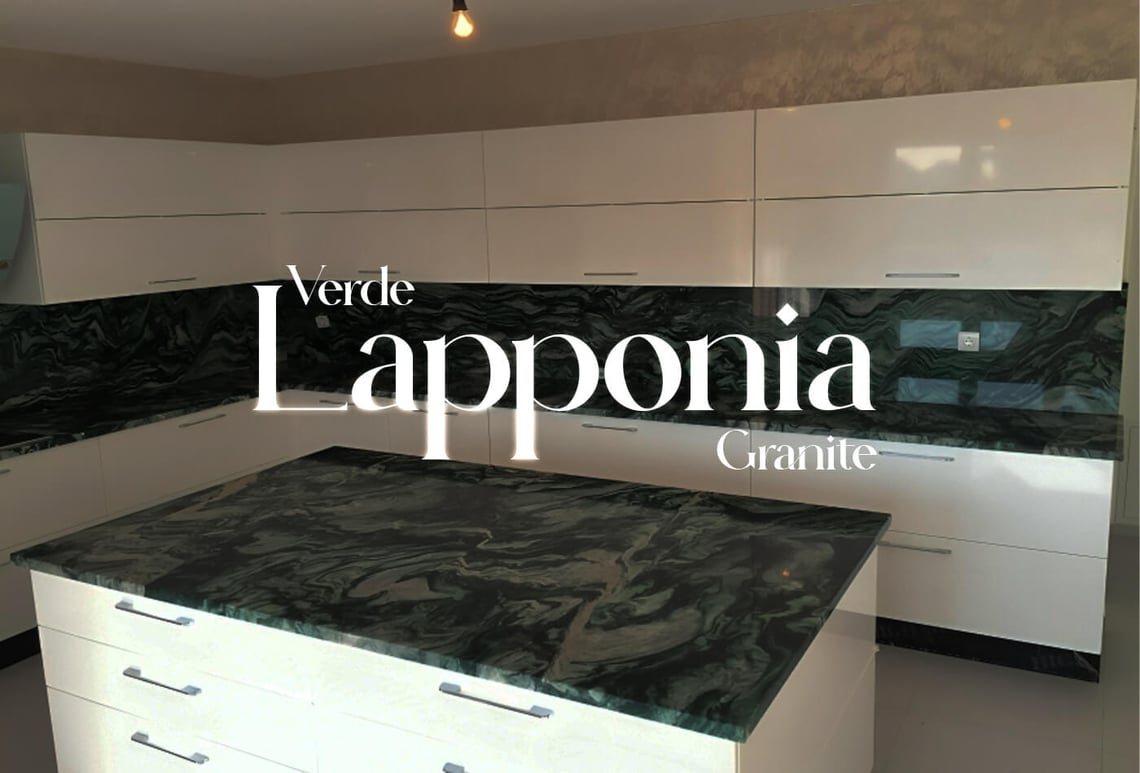Table of Contents
Sintered stone vs Porcelain is a new-fangled topic, and many commoners are unaware of such terms. We have constantly heard about Quartz, Marble, Granite, Quartzite, and even Porcelain, but have you heard about Sintered stone? Did you nod? Utilise this blog to the maximum. Both are highly demanded stone materials for various approaches to construction and design. While they share some similarities, they also have distinct differences that cater to varied sizes, colours, patterns, and the benefits of each, making the projects worthy and valuable. Getting awareness about both stones is equally important for us. So here is a valuable but approximate 4-minute session of Sintered Stone vs. Porcelain.
Let's Get To The Point: What Is A Sintered Stone?

Sintered stone is curated from the most advanced technology in construction and design materials. Engineered through a high-tech process involving extreme heat and pressure. While comparing Sintered with Porcelain worktops, their manufacturing processes deviate from one another. Sintered stone is crafted from natural minerals, such as Quartz, feldspar, and pigments. This meticulous manufacturing process produces a dense and non-porous material with exceptional durability. One of its standout features is its resistance to UV rays, making it a preferred choice for outdoor applications. The sleek and contemporary appearance of sintered stone, often found in large format slabs, adds a touch of modern elegance to spaces. Additionally, Sintered stone boasts high impact resistance and resilience against thermal shock, making it a versatile and high-performance option for various design needs.
Porcelain Overview

Regarding Sintered stone vs Porcelain's popularity, then Porcelain is the one. Porcelain is a time-tested favourite in Ceramics, which has earned its reputation for versatility. This material comprises clay and other natural ingredients fired at high temperatures to produce a dense and hard surface. Clients interrogate more about Porcelain not because they are reasonably priced but because they have a posh look like the Marbles. If you are trying to give a royal look with the least minimal budget, we would insist on using Porcelain. Available in various thicknesses, like 12MM, 15MM, 20MM, and more, they are a wiser choice for kitchens, bathrooms, floors, vanities, upstands, etc. Porcelain is a thicker option suitable for heavy-duty applications and offers a classic and timeless aesthetic. Its versatility shines through in various colours, patterns, and finishes, allowing for a broad spectrum of design possibilities with different finishes that mimic natural stones or achieve a polished contemporary look.
Porcelain suits traditional, vintage, authentic and modern design schemes. While it may not boast the same UV resistance as Sintered stone, Porcelain's proven track record of longevity and cost-effectiveness makes it a staple in interior and exterior design.
SEMINATO NERO PORCELAIN
£481.62 Seminato Nero Porcelain displays a black base which features a highly grained effect created by shiny white dots. This porcelain is given a perfect finish that makes a gorgeous addition in both residential and commercial settings. It is a dream… read more |
CALACATTA LIGHT PORCELAIN
£481.62 Calacatta Light Porcelain is a marble-effect stone created to mimic the design of the universally renowned Italian Marble. It displays colours like white and grey which make an interesting veiny pattern. This porcelain is given a perfect finish that makes… read more |
EXTRA STATUARIO PORCELAIN
£314.85 Extra Statuario Porcelain has a plain white surface with a thick black veins pattern and comes in White and Grey colour. It has a Polished & Satin finish. It is derived from the marble effect. This porcelain is given a… read more |
Similarity Between Sintered Vs Porcelain
Resilience is much appreciated in both materials. "Sintered stone Vs Porcelain" shows almost identical endurance levels. They possess fantastic durability. They resist scratches, stains, and wear, making them suitable for high-traffic areas. Both come in various shades and motifs, allowing for versatile design options. They can mimic the look of natural stones, wood, or other materials. It is not about Sintered stone Vs Porcelain but about Sintered stone and Porcelain.
Simple water, and soap liquid wipe can make the surface pristine.
Highly resistant towards moist and sealing makes it much better for longer use.
How Do Sintered Stone Vs Porcelain Vary From One Another?

Sintered Stone Vs Porcelain Making
Sintered: Sintered stone is made from natural minerals and pigments. Sintered stone is produced through a high-temperature, high-pressure manufacturing process. Which results in zero porosity and a dense slab. If hygiene comes first in your kitchen counter or sink list, opt for Sintered stone.
Porcelain: A type of Ceramic, Porcelain is made from kaolin-based clay and other natural materials. It is fired at high temperatures to create a rigid, durable surface.
Comparing Hardness
Sintered Stone: Typically available in larger and thinner slabs, making it a lightweight option for various applications. Work-tops provide exclusive sintered sink materials, a beautiful fit for any industrial and elegantly themed kitchen; preferably, 400MM thickness is utilised for sink counters.
Porcelain: Available in various thicknesses, including thicker options for heavy-duty applications and many other areas. As I have mentioned above, Porcelain comes in varied thicknesses like 20MM, which is very much favoured by invisible cooktops. Get your slabs from us to refurbish your kitchens.
Sintered stone is reliably the best when it comes to hardness.
Weight Comparison: Sintered Stone Vs Porcelain
Sintered stone: The weight of sintered stone is usually lighter than that of Porcelain, making it easier to handle during installation.
Porcelain: Heavier can affect transportation and installation, especially in thicker formats.
Ambience Enhancement "Sintered Stone Vs Porcelain" Which Is Best?
Sintered stone: Its sleek and contemporary appearance can enhance modern and minimalist design schemes. Large format slabs contribute to a seamless and clean aesthetic.
Porcelain: Traditional and classic looks are often achieved with Porcelain, making it suitable for timeless designs. Varied finishes and textures provide for creating warmth or adding a rustic touch. "Sintered stone vs Porcelain" both relatively help to boost one's interiors, but the final choice is always yours.
Benefits And Superiority:
"Sintered stone vs Porcelain": Excellent resistance to UV rays, making it suitable for outdoor applications. High impact resistance and resists thermal shock. Durability over centuries. Generally more cost-effective than sintered stone. In conclusion, choosing between Sintered stone and Porcelain depends on design preferences, application needs, and budget considerations.
CALACATTA PORCELAIN
£457.15 Calacatta Porcelain is a marble-effect stone created to mimic the design of the universally renowned Calacatta Marble. It displays colours like white and grey which make a dramatic veiny pattern. This porcelain is given a perfect finish that makes a… read more |
DARK MARQUINA PORCELAIN
£481.62 Dark Marquina Porcelain displays a black colour which makes the majority of the slab base. Colours like grey and white can be seen on top of the black base, where white makes thin linear veins and grey is just hazy… read more |
FIOR DI BOSCO PORCELAIN
£481.62 Fior Di Bosco Porcelain displays a grey colour which makes the majority of the slab base. Besides grey, hints of beige and white can be seen as veins on the grey base. This porcelain is given a perfect finish that… read more |
Frequently Asked Questions:
Which Is More Expensive?
Sintered stone is often more expensive due to its manufacturing process and technical properties.
Which Is Better For Countertops?
Both can be used for countertops, but sintered stone may be preferred for sinks because of its lightweight properties and staining resistance. Add thick Porcelain slabs for counters, but discomfort can break a Porcelain material; kindly consult with the stone mason before buying one.
P.s. The readers are informed that none of the content available on any of the pages of Work-tops.com should be taken as legal advice and that Work-tops will not be held accountable for your use of the information contained in or linked from these web pages.




